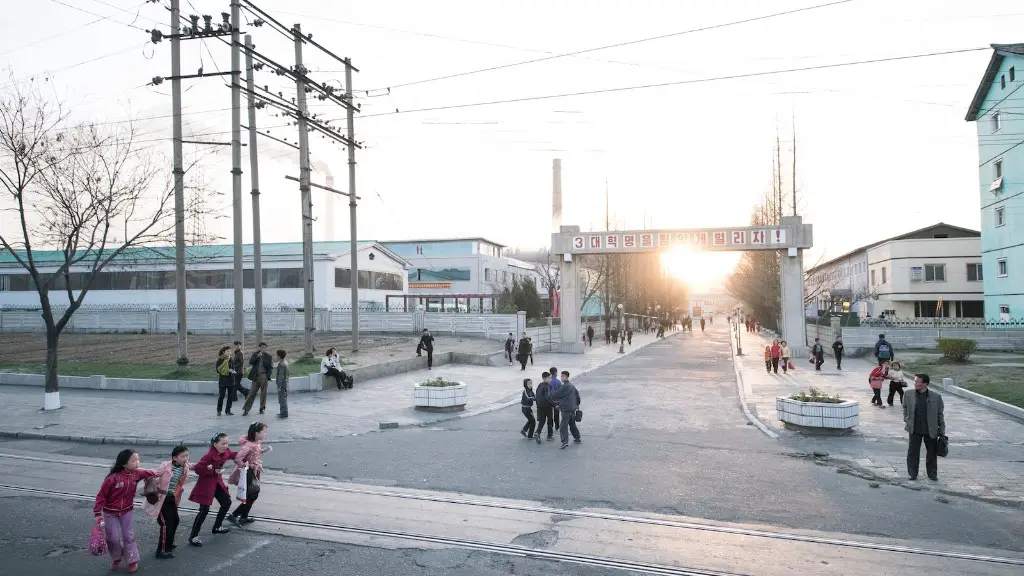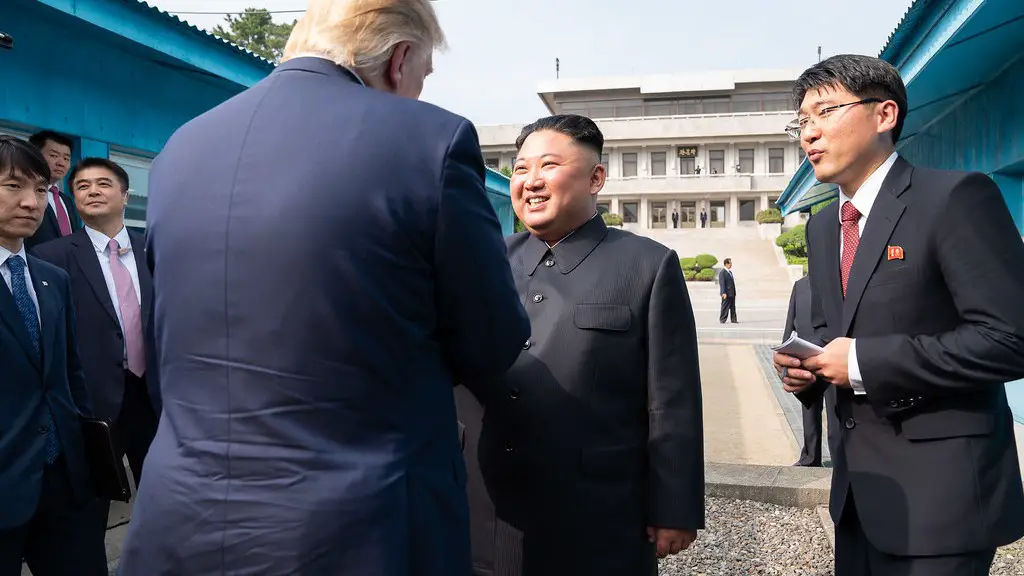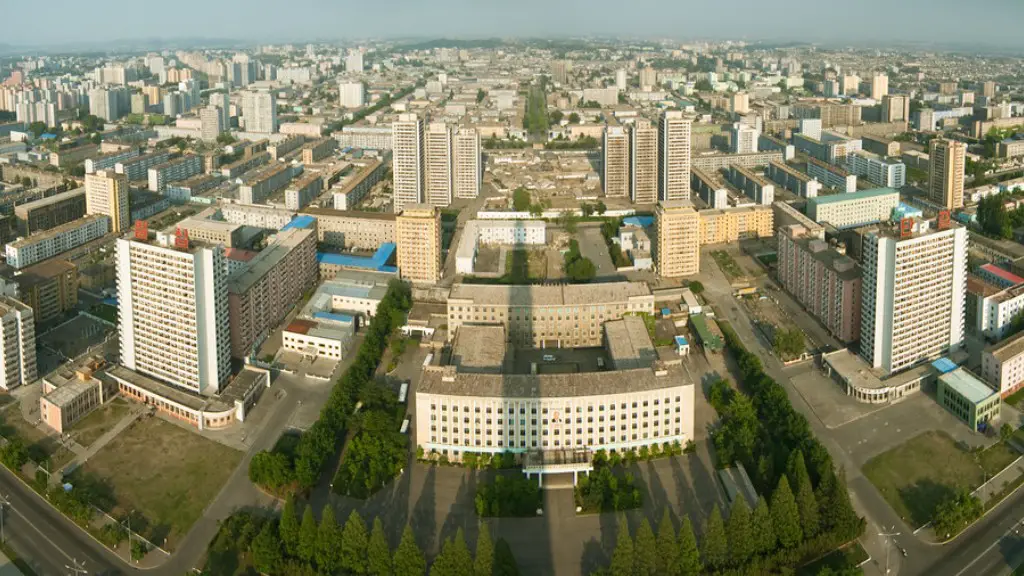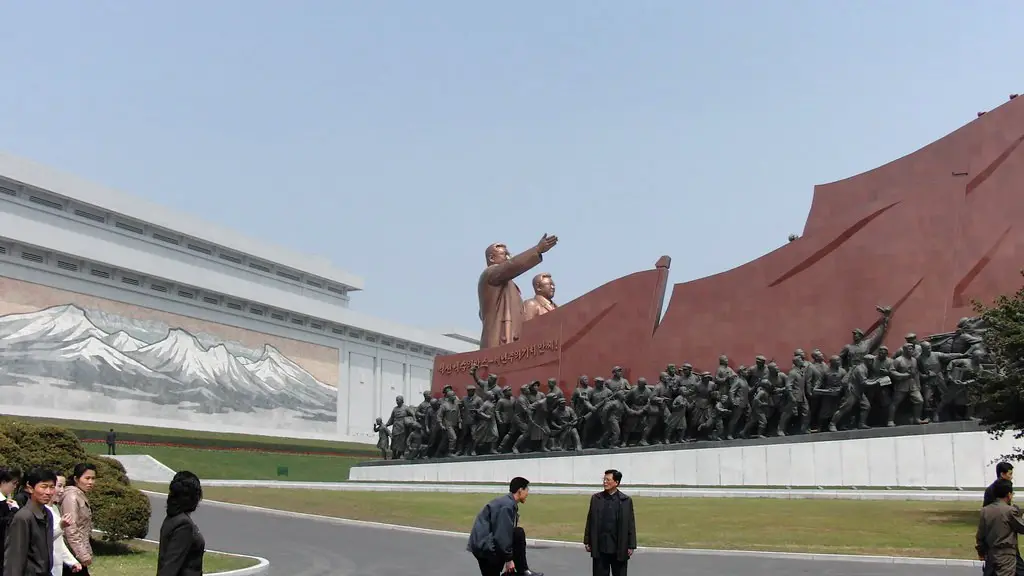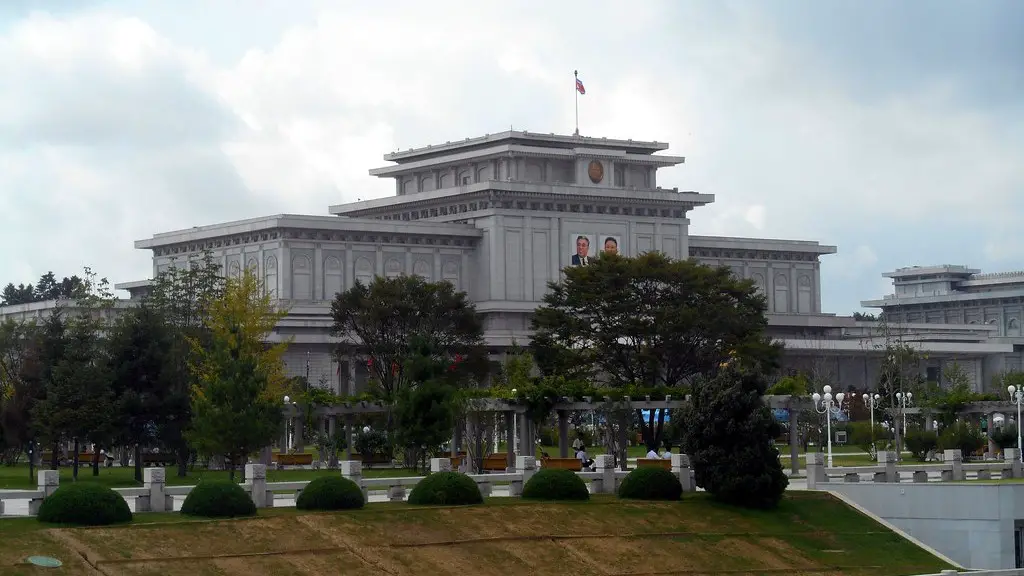Tension has been rising between North Korea and the United States for years, with North Korea hating the US on multiple levels. North Korea is a historically isolationist country whose level of distrust and hatred of the US is rooted in their traumatic experience with the Korean War. North Korea believes that the US has contributed to its decades of suffering, having orchestrated both the Korean War and its devastating subsequent aftermath. North Korea has continuously acted to counter its perceived US threat, stoking antagonism and mistrust that exists between the two nations today.
In the Korean War, North Korean forces suffered heavily; with estimates from the US Naval War College suggesting a death toll of nearly 2 million North Korean lives. North Korea was crippled by the war, with almost every economic aspect of their society being damaged during its course. These losses have never been acknowledged or rectified, with the US refusing to grant North Korea reparations when the war ended. This further entrenched the sense of victimhood in North Korean society, and caused them to fear the US as an enemy that cannot be trusted.
Adding to their anti-US sentiment, North Koreans accuse the US of a continuous policy of propoganda, considered an illegal form of warfare in international law. This is thought to have aggravated resentment in North Korea, with many locals being exposed to state-run media campaigns depicting the US as a, dangerous, hostile and oppressive force. Projecting its image as the hero of the Korean War, the US is perceived to have enslaved the North Korean people and robbed them of their freedom and dignity. North Koreans are taught to value their nationalistic identity and to destroy their connection with the US, much in the same way they may have sided with the US and South Korea in the war.
The US has responded to North Korea’s anti-US stance by imposing economic sanctions on the country, dismissing any negotiations and trying to strangle the North Korean economy. This has failed to have the desired effect and has only further driven the mistrust between the two nations. North Korea also views these actions as a form of aggression, fueling their hatred of the US, and increasing their determination to take matters into their own hands.
In conclusion, North Korea’s hatred of the US is multi-faceted and deeply ingrained in the memory of its people.North Korea condemns the US for its role in the Korean War and its subsequent economic sanctions and propaganda. North Korea remains steadfastly anti-US, with its people harbouring strong opinions and feelings against the US’s beliefs and policies. This animosity is unlikely to abate anytime soon.
The US-South Korea alliance
The US-Korea alliance has been a source of distrust and tension between North Korea and the US for many years. North Korea views the alliance as a clear example of US-imperialism, hostile to their own interests and those of their people. North Koreans feel the alliance has done nothing to promote peace but instead has acted as a catalyst for further animosity between North Korea and the US.
The alliance appears to be a powerful deterrent to North Korea’s aggressive actions, and has caused North Korea to question whether the alliance is more of a threat to their own security than a means of protecting them. North Korea perceives South Korea as a puppet of the US, a vulnerable nation that is content to be directed by their former oppressors. North Korea’s people are keenly aware of the US-Korean alliance, their awareness often leading them to question their own government’s decisions and strategies.
Many experts have predicted that if the US is willing to negotiate with North Korea, the alliance between the US and South Korea could eventually be dissolved, leading to a more cooperative relationship between North and South Korea. Negotiations between the US and North Korea would be a major step towards de-escalating the current tensions on the Korean peninsula. This could result in a more cooperative relationship between North and South Korea, as well as a reduced level of hostility from North Korea.
While little progress has been made in this area, the potential exists to rebuild trust and start a new dialogue between North Korea and the US. The first step toward this goal is to dismantle the US-Korea alliance, which would help reduce North Korea’s hatred of the US, and ultimately move towards a more peaceful relationship.
North Korea’s Nuclear Ambition
In recent years, North Korea has sought to counter its perceived US threat by developing nuclear weapons and a missile program. As a result, the US has responded by further tightening sanctions and increasing its military presence in the region. This has had the opposite effect of what was intended, with North Korean advancing their nuclear weapons capabilities and announcing its willingness to use them.
The US has consistently condemned North Korea’s nuclear ambitions and has sought to impose further sanctions. The US’s refusal to negotiate has only further antagonized North Korea, with North Koreans accusing the US of being rigid and hypocritical in its stance. North Korea believes that the US wants to prevent their progress and gains and is trying to keep them in a state of subjugation and poverty.
Experts have warned that if North Korea continues to develop its nuclear weapons capabilities, they may be able to threaten US allies and regional stability. To prevent this, the US must engage in productive dialogue with North Korea and attempt to begin a more diplomatic approach to foreign policy. North Korea still views the US as an enemy, and will be wary of any attempts to engage. However, a more diplomatic approach to the US-North Korean relationship may be the best way to reduce tensions and help to prevent a nuclear confrontation.
US Sanctions and Human rights abuses
The US has imposed numerous economic sanctions on North Korea over the years, ranging from trade embargoes to the freezing of assets. These measures have had a crippling effect on North Korea’s economic development, with some experts suggesting that the US has essentially imposed a “death sentence” on the nation’s economy. This has led to a marked decline in living standards, with many citizens struggling to survive due to the effects of US-imposed sanctions.
In addition to economic sanctions, the US has also been accused of turning a blind eye to the humanitarian issues and human rights abuses present in North Korea. Reports have emerged, detailing the brutal and inhumane treatment of prisoners, and North Korea’s dedication towards the oppression of its citizens. The US has done little to address these issues, and its refusal to act has been viewed as condoning the abuses. This has only further inflamed the hatred between North Korea and the US, with North Koreans perceiving the US as an enemy, not an ally.
The US has long claimed that it stands for human rights and justice, and its failure to act on these reported abuses has only damaged its already fraught relationship with North Korea. To promote peace and de-escalate the tension between the two countries, the US must take responsibility for its actions and make a real effort to address the human rights abuses taking place in North Korea.
The Impact of Asia-Pacific Economy
North Korea’s economy is heavily dependent on trade with the Asia-Pacific region. As China’s economy has grown in recent years, North Korea has benefited economically, and this has been seen as a positive development. North Korea has been able to access more resources, expand its markets, and invest in infrastructure. However, despite this growth, the US has sought to undermine North Korea’s efforts by imposing trade restrictions and sanctions.
This has caused North Korea to question the US’s commitment to economic cooperation in the region and has further deepened mistrust between the two countries. The US’s sanctions have only served to stifle economic development in North Korea, and have contributed to their culture of mistrust and hatred towards the US. This has further isolated North Korea economically, and has created an adversarial relationship between the two countries.
The US can reverse this by lifting the trade restrictions and engaging in dialogue with North Korea. This may help to reduce the mistrust and hatred between the two countries, and could lead to a more cooperative and productive relationship in the future. This could benefit both countries economically, as well as help to create a more peaceful region.
Future Prospects
The future of North Korea’s relationship with the US remains uncertain, with both sides continuing to mistrust each other. North Korea’s mistrust of the US will continue to fuel the strained relationship between the two countries. However, it is possible that both countries could find a way to begin a productive dialogue, and move towards a more cooperative relationship.
The first step in this process would be for the US to address the grievances of North Korea, and make an effort to repair the damaged relationship. The US must also make a concerted effort to de-escalate the tensions between the two countries, and be willing to enter into negotiations. Once the US has addressed these issues and taken meaningful steps towards a more peaceful relationship, then perhaps the two countries may finally begin to trust each other.
North Korea also needs to be willing to talk and cooperate with the US in order to build trust. North Korea must be willing to open up its borders and engage in open dialogue, acknowledging the fact that the US is not their enemy. North Korea must also take steps to reduce its nuclear weapons capabilities, and stop using nuclear weapons as a tool of aggression.
It is clear that North Korea’s hatred of the US is deep-rooted and unlikely to abate anytime soon. However, both sides must make an effort to reduce the animosity between them, in order to create a more stable and peaceful region. The future of the US-North Korea relationship is uncertain, but with the right efforts, it may be possible for both countries to move forward and work towards a better relationship.
